In today’s world, where energy efficiency and sustainability are key concerns, many homeowners are asking: Are boilers eco-friendly? With rising energy costs and increasing awareness of carbon emissions, it’s important to understand how modern boilers impact the environment and what steps can be taken to reduce their footprint.
In this guide, we’ll explore how boilers affect the environment, the benefits of upgrading to an energy-efficient boiler, and what you can do to make your heating system more eco-friendly.
How Do Boilers Impact the Environment?
Traditional boilers burn fossil fuels such as natural gas, oil, or LPG to generate heat. While these fuels are effective at heating homes, they produce carbon dioxide (CO₂) emissions, which contribute to climate change. Older, inefficient boilers waste more energy, leading to higher fuel consumption and increased environmental impact.
However, advances in boiler technology mean that modern systems are significantly more efficient, reducing both energy waste and emissions. Understanding the difference between older non-condensing boilers and modern condensing boilers is key to making an informed choice.
Are Modern Boilers More Eco-Friendly?
Yes! Thanks to advancements in heating technology, modern boilers are far more energy-efficient than their predecessors. Here’s why:
- Condensing Technology
- Unlike older boilers that lose heat through flue gases, condensing boilers capture and reuse this heat, making them up to 90% efficient.
- This efficiency means less fuel is needed to heat your home, reducing carbon emissions and lowering energy bills.
- Lower NOx Emissions
- Many newer boilers are designed to produce lower nitrogen oxide (NOx) emissions, which helps to improve air quality and reduce environmental impact.
- Smart Heating Controls
- Modern boilers can be paired with smart thermostats and programmable controls, optimising heating schedules to prevent unnecessary energy use.
- Features such as weather compensation and load compensation allow the boiler to adjust its output based on external temperatures, further improving efficiency.
- Hydrogen-Ready Boilers
- As the UK moves towards greener energy solutions, hydrogen-ready boilers are being developed to run on a mix of natural gas and hydrogen.
- These boilers can easily transition to using hydrogen, a cleaner fuel that produces zero carbon emissions when burned.
By switching to a high-efficiency boiler, homeowners can significantly reduce their carbon footprint while enjoying lower energy costs.
How Can You Make Your Boiler More Eco-Friendly?
Even if you’re not ready to replace your boiler, there are simple steps you can take to improve efficiency and reduce your carbon footprint:
- Annual Servicing: A well-maintained boiler runs more efficiently. Regular servicing by a Gas Safe registered engineer ensures optimal performance and safety.
- Bleeding Radiators: Removing trapped air from radiators allows your heating system to work more efficiently.
- Upgrading Heating Controls: Installing a smart thermostat can help reduce energy consumption by heating your home only when needed.
- Improving Home Insulation: Well-insulated homes retain heat better, reducing the workload on your boiler.
Need an Eco-Friendly Boiler Upgrade?
If you’re looking to reduce your energy bills and carbon footprint, upgrading to an energy-efficient boiler is a smart investment. At Bracknell Plumbing and Heating, we specialise in boiler installation in Maidenhead and surrounding areas, offering expert advice and professional service.
Get in touch today to discuss the best eco-friendly heating solutions for your home!
